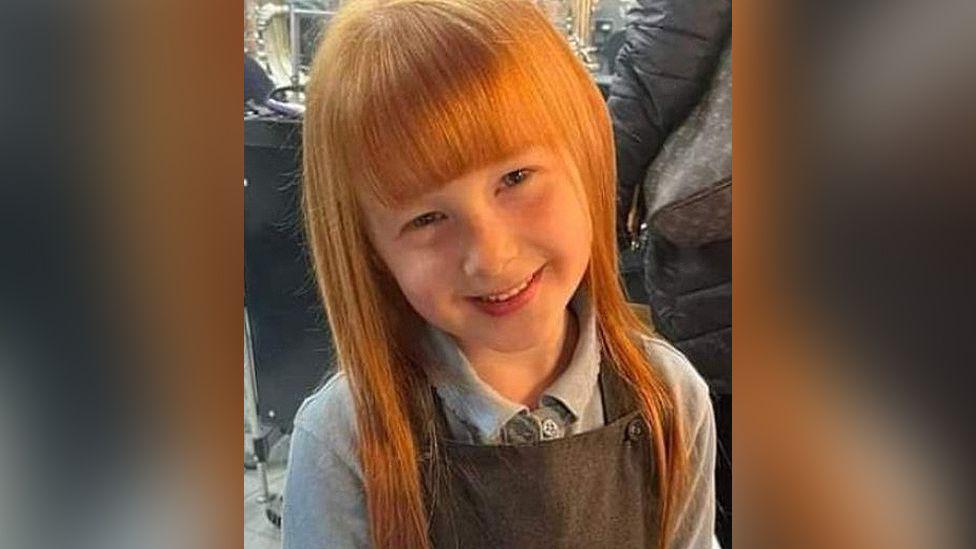'He died days after being sent home with Gaviscon'
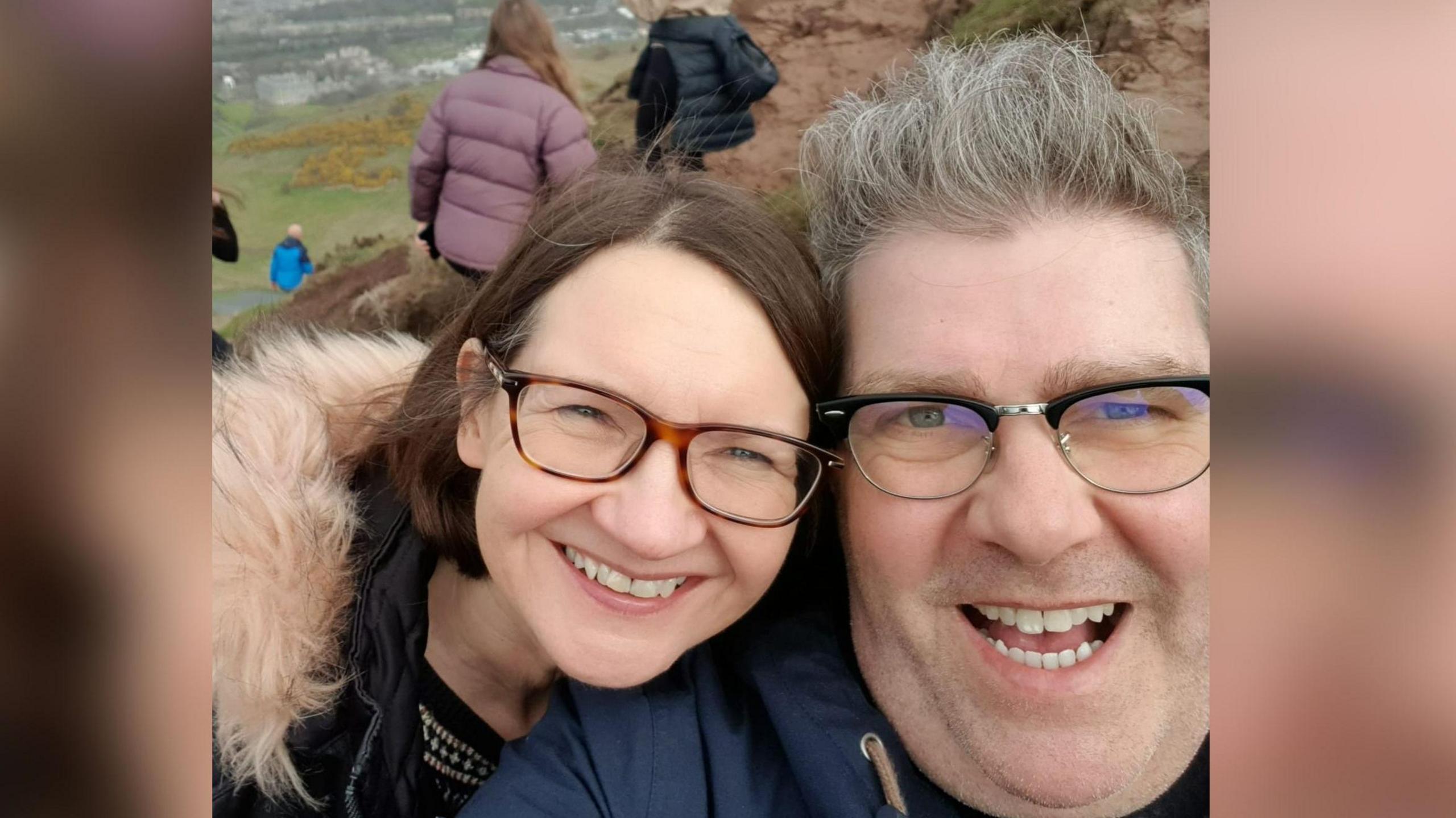
Ms O'Hagan described her partner as warm, friendly and intelligent
- Published
A woman who said her partner died after he was misdiagnosed at A&E and sent home with Gaviscon has called for greater awareness about a heart condition that "flies under the radar".
Sandra O'Hagan said David Burgess, 52, had never "taken a day off work" and was generally healthy until he experienced "horrific" stomach and back pain.
Ms O'Hagan, from Sale in Greater Manchester, took him to Wythenshawe Hospital on 25 April, where he was diagnosed with gastritis rather than an aortic dissection. He died 15 days later.
A Manchester University NHS Foundation Trust spokesperson offered "sincere condolences to Mr Burgess's family and friends for their loss", and said his care was being reviewed.
'Pain and symptoms persisted'
Mr Burgess, a legal recruitment consultant, was diagnosed with gastritis - inflammation of the stomach lining - at Wythenshawe's A&E department.
He was sent home later that day and told to take Gaviscon - typically used to treat heartburn and indigestion - with no follow-up appointment arranged.
Chartered accountant Ms O'Hagan, 56, said his pain and symptoms persisted and so they returned to A&E on 1 May, where he was diagnosed with aortic dissection.
This is a life-threatening condition characterised by the tearing of the aortic wall, which can compromise blood flow to vital organs.
After urgent surgery, doctors told Ms O'Hagan there was nothing more they could do and it would be "cruel to keep trying".
His life-support was withdrawn on 10 May.
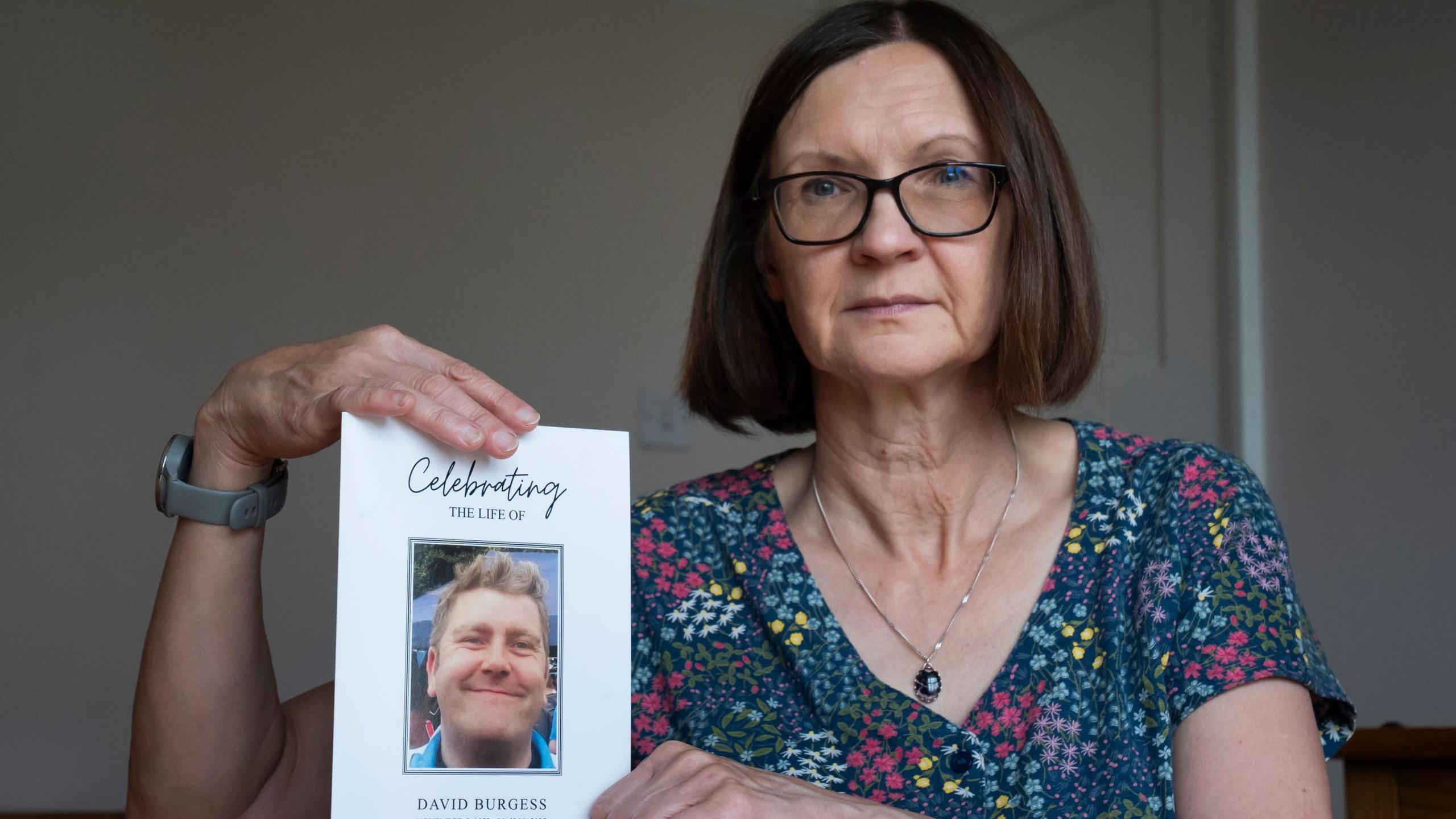
Sandra O'Hagan holds a copy of the order of service for her late partner David Burgess's funeral
Ms O'Hagan said she believed her partner would have had a significantly better chance of survival - and may even have still been alive - had he been correctly diagnosed during his first A&E visit.
She said she was exploring legal action against the hospital, although investigations were currently ongoing.
She said she also wanted to raise awareness "to prevent other families from going through this".
Ms O'Hagan said more needed to be done to educate people and healthcare professionals alike about aortic dissection.
She said research from the Aortic Dissection Charitable Trust suggested correct diagnoses could save 10 lives per week.
The charity said 2,000 people a year lost their lives from aortic dissection in the UK.
It said acute aortic dissection can present with a wide range of symptoms, with the most common being the sudden onset of severe pain, typically felt in the chest, back, neck or abdomen, or in a combination of these areas.
Ms O'Hagan said the couple "had no idea what the pain related to", but since it was not in his chest, they did not think it was heart related.
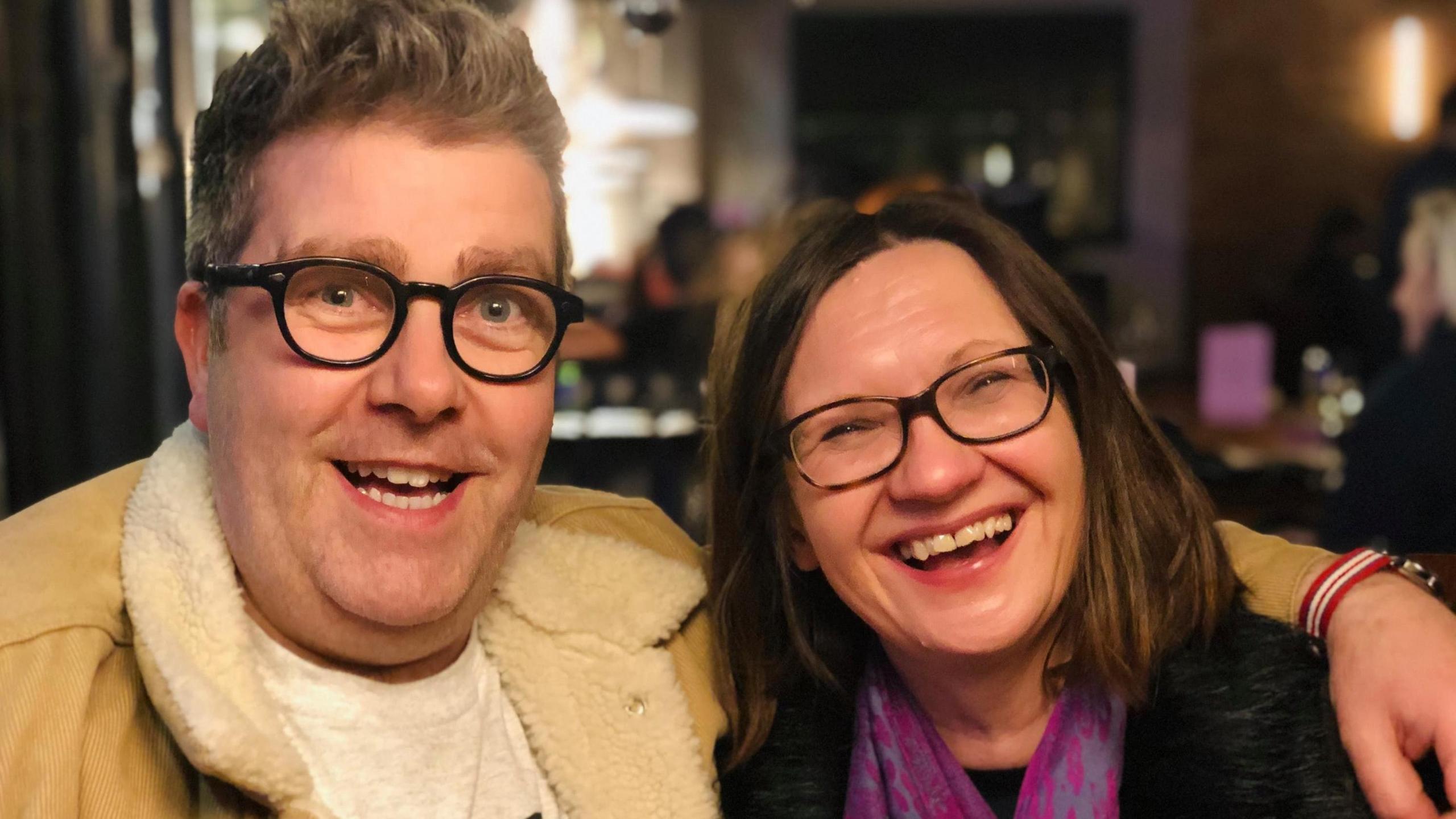
Sandra O'Hagan said she and her partner "had no idea what the pain related to", but since it was not in his chest, they did not think it was heart related
Speaking about her late partner, Ms O'Hagan said: "I just thought 'How can this be happening? He went to A&E nearly a week ago and they sent him home.'
"It just didn't seem to make sense. It was so unexpected, it was like a nightmare."
A spokesperson for Manchester University NHS Foundation Trust said: "We have discussed his sad death with Ms O'Hagan, and we are undertaking a review of Mr Burgess's care."
Findings from that review will be shared with both Ms O'Hagan and the coroner, the trust spokesperson added.
The trust was awaiting the conclusion of the inquest before commenting further.
Ms O'Hagan said she met her partner in 2012, describing him as warm, friendly, intelligent and "very sharp".
While she said he struggled with his weight, he was otherwise generally healthy and sometimes enjoyed cycling to and from work.
"He never went to the doctors, and I can't remember him taking a day off work - he was always so committed to working and he was pretty tough," she said.
On 24 April, however, he told Ms O'Hagan he was experiencing a "sharp pain" in his stomach and back.
Since it was not in his chest, they did not think it was heart related.
"He said he'd never felt anything like it before," she explained.
"It was absolutely horrific, just completely out of nowhere."
Get in touch
Tell us which stories we should cover in Greater Manchester
Listen to the best of BBC Radio Manchester on Sounds and follow BBC Manchester on Facebook, external, X, external, and Instagram, external. You can also send story ideas via Whatsapp to 0808 100 2230.
Related topics
More like this story
- Published25 March
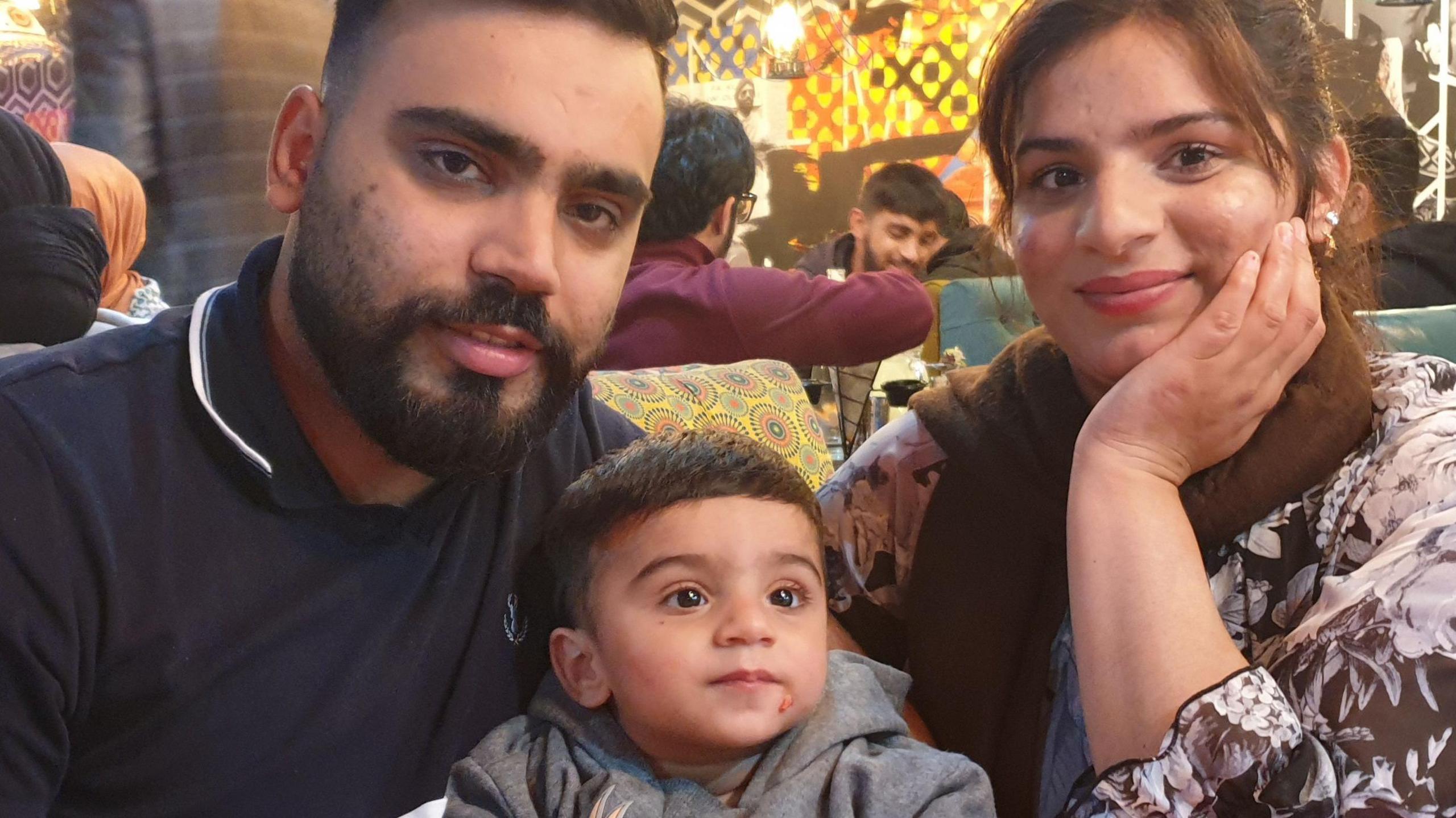
- Published5 June
